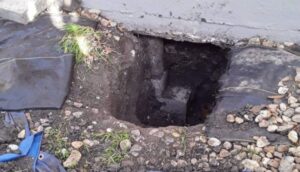
Investment
When looking for the best heating solution for your home, a boiler is often one of the most trustworthy and effective options. Knowing the long-term value of a boiler will help you make an informed decision, whether you’re upgrading your present heating system or installing a new one. Boilers provide continuous warmth, hot water, and energy efficiency, making them a good choice for many homes. Is it worth investing in a boiler? In this article, we will look at the main benefits of installing a boiler, the factors to consider, and how it may improve the comfort and functionality of your home while potentially saving you money in the long run. For your boiler installation, contact Allstar Systems.
Benefits of installing a boiler
Energy efficiency is one of the most significant advantages of installing a boiler. Boilers, unlike typical heating systems, convey heat directly through pipes, resulting in less energy waste and lower utility bills. Many modern boilers employ cutting-edge technology to reduce fuel consumption, allowing homeowners to enjoy uninterrupted comfort while minimising their carbon footprint—an increasingly essential feature in today’s environmentally conscious culture.
In addition, boilers are more durable and long-lasting than other heating systems. Because they have fewer moving parts than furnaces or heat pumps, they often require less maintenance and break down less frequently over time. This dependability translates into not only long-term cost savings for repairs but also comfort of mind throughout the cold winter months. Furthermore, many types of boilers may power both your home’s heating system and hot water supply at the same time, making them an effective two-in-one solution that maximises available space while smoothly meeting your household needs.
Long-term efficiency and energy savings
Investing in a new boiler may be overwhelming, but the long-term efficiency and energy savings it provides can more than cover early expenditures.Modern boilers use modern technology to improve performance while minimising fuel use. Condensing boilers, for example, may extract more heat from exhaust gases with a higher efficiency than 90%. This translates to cheaper energy bills and a smaller carbon footprint—a win-win for both your wallet and the planet.
The incremental efficiency gained over time should not be ignored. While older units may require frequent maintenance and use out-of-date technology, newer versions typically incorporate smart thermostats and modulating capabilities that optimise heating according to demand. This necessitates making real-time adjustments to energy consumption, which can result in substantial long-term savings. Over time, homeowners may expect considerable returns on their investment as electricity prices and maintenance expenses fall, leaving them more time to focus on what is truly important in life.
Comparison of Boilers and Other Heating Solutions
When deciding on the most efficient and effective heating solution for your house, compare boilers to alternatives such as heat pumps and furnaces. Unlike typical forced-air systems, which can circulate dust and allergens while heating, boilers emit radiant heat, resulting in a more comfortable and consistent temperature throughout your living space. This mild warmth reduces drafts, making it ideal for allergy sufferers or those who are sensitive to air quality.
Heat pumps are an energy-efficient choice since they transfer heat rather than generate it; however, their efficiency might suffer in severely cold weather. Modern boilers, on the other hand, work properly regardless of the weather, ensuring consistent comfort even during tough winters. Furthermore, with advances in boiler technology, such as condensing models that recover waste heat, homeowners can enjoy not only better efficiency but also lower utility expenses over time. Finally, when weighing these many possibilities, understanding the distinct advantages of a boiler may lead you to see its value as a long-term investment in comfort and sustainability.
Maintenance is essential for longevity and performance
Purchasing a boiler is simply the beginning; its longevity and maximum performance are significantly dependent on regular maintenance. A well-maintained boiler increases energy efficiency and reduces the probability of costly breakdowns. Homeowners frequently overlook the value of routine inspections, which can discover minor flaws before they become major ones. Engaging professionals to do regular inspections may guarantee that components such as valves, pumps, and heat exchangers are in top shape, extending the system’s life.
Another factor commonly overlooked is the influence of water quality on boiler performance. Hard water can cause limescale buildup in pipes, clogging them and reducing efficiency over time. Implementing a water softening system or frequently descaling your boiler helps to keep it in good operating order while saving money on energy bills. Furthermore, by monitoring signals such as unexpected noises or shifting temperatures, homeowners may address potential problems proactively rather than reactively, transforming maintenance from a nuisance to an investment in comfort and dependability for years to come.
Purchasing a boiler can significantly increase the comfort and efficiency of your heating system. Boilers are typically a more cost-effective option than alternative heating systems due to their ability to provide continuous warmth and long-term energy savings. Furthermore, recent developments in boiler technology have made them more environmentally friendly and simple to operate than ever before. While the initial cost may appear excessive, the long-term benefits of enhanced reliability and lower electricity bills make it a sound investment. Take the first step toward better heating in your home today by investigating new boiler options!







